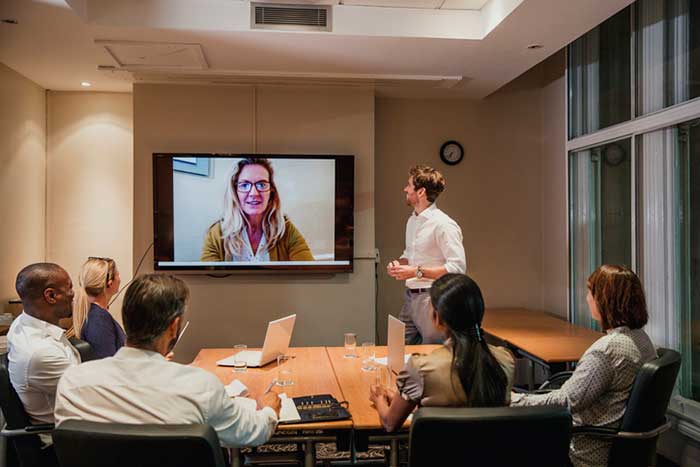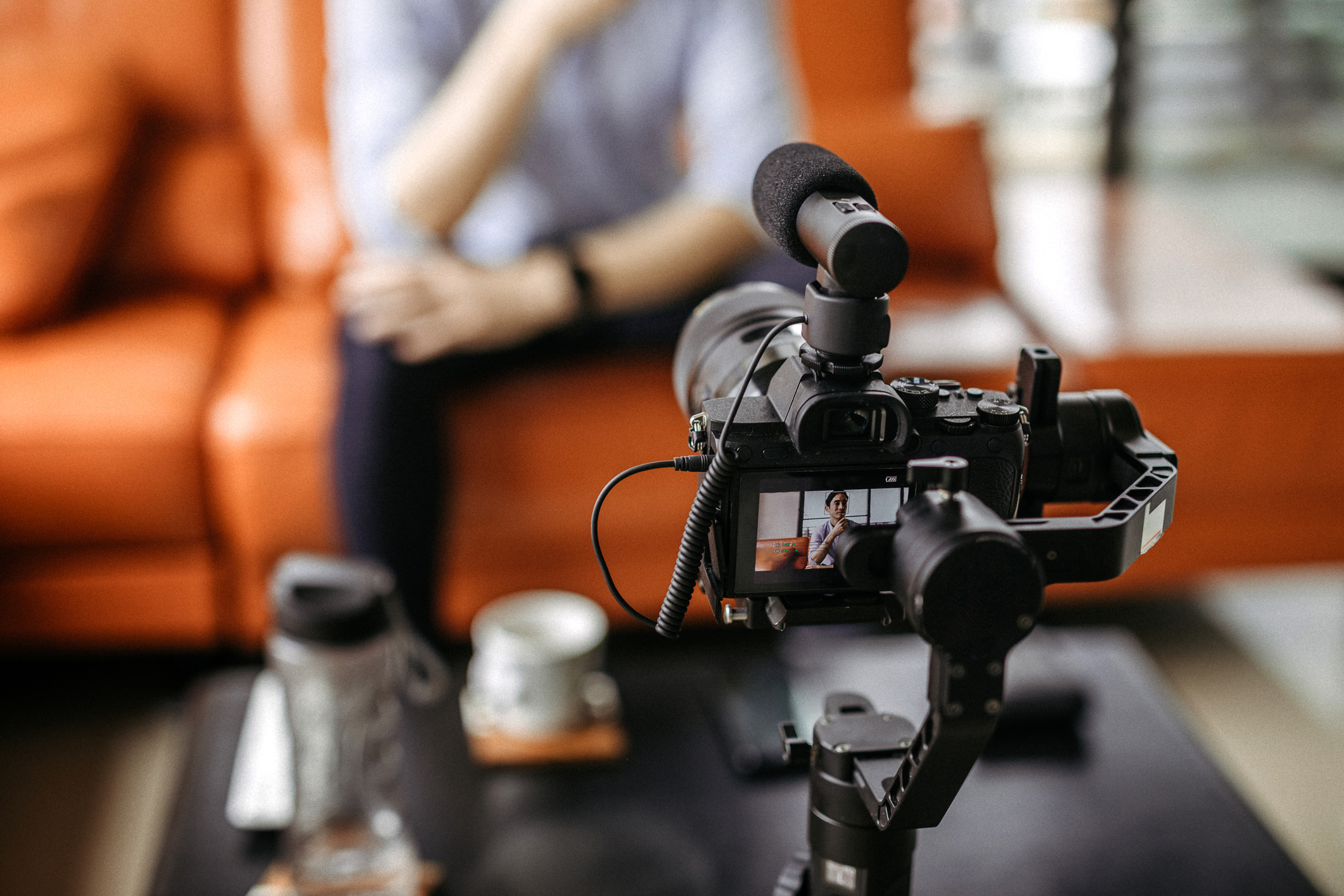The Significance of Lawful Video Depositions in Modern Legal Services: What You Must Know
Lawful video clip depositions have actually become essential in today's lawful landscape. They provide a multidimensional view of witness testimonies that typical transcripts just can not match. By capturing both verbal and non-verbal communication, these depositions enhance the total understanding of a witness's integrity. Nevertheless, the effectiveness of video depositions depends upon numerous elements, including conformity with legal criteria and ideal methods (legal video depositions). Discovering these aspects exposes their true relevance in modern lawful solutions
What Are Lawful Video Clip Depositions?
Lawful video depositions work as a crucial tool in the litigation process. They entail taping witness testaments in a video layout, capturing both non-verbal and spoken communication. This technique permits attorneys to record the demeanor, expressions, and reactions of witnesses, supplying a richer context for the testament. Commonly performed in a regulated setting, these depositions are led by attorneys who ask concerns while a stenotype reporter documents the discussion. The resulting video can be vital for test preparation, as it enables legal representatives to assess the trustworthiness of witnesses and refine their approaches. Additionally, lawful video clip depositions can be utilized in different legal contexts, varying from civil disagreements to criminal cases. The auditory and visual components of video clip depositions improve the discussion of proof, making it a crucial element in the modern legal landscape. On the whole, they contribute considerably to the performance and performance of lawful procedures.

Advantages of Video Depositions Over Typical Techniques
Video depositions provide countless advantages compared to standard techniques of taking witness testaments. One considerable benefit is the capability to record both audio and aesthetic aspects, providing an extra extensive record of the witness's statements. This dual style improves clearness and permits lawyers to reference specific subtleties throughout trial preparation. Furthermore, video clip depositions promote remote engagement, making it easier for witnesses who might be not available for in-person appearances because of geographical constraints or health and wellness issues.Moreover, video clip depositions can quicken the overall deposition process, lowering the moment and prices related to traveling and logistics. They additionally improve availability, as recorded depositions can be quickly shared among lawful teams and referenced at any type of time. This convenience adds to far better case monitoring and preparation. Generally, video depositions stand for a contemporary, efficient method to collecting witness statements, straightening with the progressing requirements of the legal occupation.
The Duty of Body Language and Tone in Testimonies

In lawful video clip depositions, body language and tone play important functions in sharing a witness's trustworthiness and dependability. Nonverbal signs can provide understandings right into a witness's mood, affecting how their statement is perceived. Recognizing the effect of these elements is important for jurors and attorneys alike when reviewing the integrity of a testament.
Nonverbal Communication Insights
While spoken interaction is typically emphasized in lawful statements, nonverbal hints such as body language and tone play an essential role in conveying trustworthiness and feeling. Onlookers of depositions might keep in mind that a witness's pose, gestures, and facial expressions can substantially influence perceptions of reliability. As an example, consistent eye call might signify confidence, while preventing gaze can suggest dishonesty or pain. Similarly, the intonation-- its pitch, pace, and volume-- can present sensations of genuineness or unpredictability. Attorneys should be attuned to these nonverbal signals, as they frequently provide essential context that matches talked words. Comprehending these nuances can boost the effectiveness of depositions and influence the outcome of lawful procedures.
Psychological Tone Effect
The psychological tone conveyed throughout lawful testimonies significantly influences exactly how a witness is regarded. Body movement, vocal inflections, and faces play crucial roles fit the story of a testimony. A witness showing confidence with consistent eye call and a calm tone can impart a feeling of integrity and engagement. Alternatively, signs of stress and anxiety, such as fidgeting or an unsteady voice, might lead to skepticism regarding their account. The nuances of emotional expression can influence the interpretation of facts, making it necessary for lawful professionals to acknowledge these signs. In video clip depositions, the visual and auditory elements combine, emphasizing the relevance of emotional tone in sharing sincerity and reliability within the legal procedure.
Reputation and Trustworthiness
An important variable in establishing reputation and trustworthiness during testaments depends on the witness's body movement and tone of voice. Viewers frequently rely upon non-verbal signs-- such as eye get in touch with, position, and website link gestures-- to assess a witness's genuineness. A witness that preserves eye call and presents open body language may be viewed as more straightforward and reputable than one that stays clear of eye call or appears closed off. Furthermore, intonation plays a crucial role; a stable, tranquil tone can reinforce the trustworthiness of the testimony, while changes in pitch or quantity might raise doubts. Eventually, the mix of body language and vocal tone greatly affects just how a witness's statements are obtained and translated in a legal context.
Finest Practices for Conducting Video Clip Depositions
Performing video clip depositions calls for mindful planning and execution to ensure a reliable and clear discussion of testament. First, it is essential to choose a quiet, well-lit location to lessen distractions and secure optimal video high quality. The equipment must be tested beforehand, consisting of video cameras, microphones, and illumination, to stay clear of technological concerns throughout the deposition.Next, parties involved must assess the layout and treatments ahead of time, ensuring that everybody recognizes their functions. The deponent must be informed on the procedure, consisting of just how to respond plainly and concisely.Additionally, maintaining a specialist attitude throughout the session is necessary. This includes avoiding talking over each other and validating that all concerns are directed properly. It is important to tape-record the deposition in a layout that enables for easy playback and review, protecting the stability of the statement for future use.
Legal Factors To Consider and Compliance Issues
Just how do legal factors to consider and compliance issues affect the performance of video depositions? Attorneys need to browse a complex landscape of guidelines, guaranteeing that video clip depositions adhere to administrative guidelines and criteria. Compliance with regulations concerning personal privacy, approval, and videotaping methods is important. Obtaining specific consent from all parties included is needed to stay clear of lawful repercussions.Additionally, the admissibility of video evidence in court can pivot on conformity with step-by-step needs. Ensuring that the tools used satisfies technological criteria is also crucial, as bad high quality can undermine the deposition's reliability.Moreover, attorneys must be mindful of any details state legislations that control video clip depositions, as these can differ significantly. Failure to address these considerations can not only threaten the honesty of the deposition but also influence the total situation strategy, eventually influencing the customer's legal results.
Just How Video Depositions Impact Jury Understanding
While video depositions can function as powerful devices in legal procedures, their impact on court perception is significant. The acoustic and visual aspects of video clip recordings offer jurors with a much more complete understanding of witness attitude, reliability, and psychological responses. This multimedia method can enhance the jurors' capacity to evaluate the dependability of statement compared to standard text-based transcripts.Moreover, video clip depositions permit jurors to observe body movement, tone of voice, and face expressions, all of which can impact their interpretation of the witness's declarations. The presence of a witness on display can humanize them, cultivating compassion and link, which might persuade jurors' opinions. On the other hand, a witness that shows up undependable or news evasive on video clip why not try this out may result in unfavorable assumptions that influence a court's decision. Eventually, the dynamic nature of video depositions plays a crucial function in shaping just how jurors translate proof and reach their decisions.
The Future of Video Clip Depositions in Legal Technique
As innovations in technology remain to reshape the lawful landscape, the future of video clip depositions is poised for considerable advancement. Technologies such as fabricated intelligence, virtual fact, and boosted video clip conferencing devices are anticipated to streamline the deposition procedure and boost accessibility. Lawyers may use AI-driven analytics to evaluate witness credibility and instance stamina much more effectively.Moreover, the assimilation of online truth might allow courts to experience immersive simulations of depositions, giving much deeper context and understanding. In addition, the pattern towards remote depositions is most likely to continue, providing greater flexibility for attorneys and customers alike.As remote job becomes increasingly stabilized, video clip depositions will likely come to be standard practice, decreasing expenses and time restraints linked with conventional approaches. In general, these technological innovations guarantee to boost the effectiveness, efficiency, and availability of video depositions in legal practice, inevitably changing just how legal professionals get ready for trial.
Frequently Asked Concerns
Just How Much Do Legal Video Depositions Typically Price?

Can Video Depositions Be Utilized in Any Type Of Sort Of Instance?
Video depositions can be used in numerous sorts of instances, consisting of civil, criminal, and family law. Their flexibility enables attorneys to existing witness testimonies successfully, adjusting to the specific requirements of various lawful circumstances.
What Tools Is Needed for a Video Deposition?
To conduct a video deposition, crucial devices consists of a premium cam, microphone, illumination, and a trustworthy recording gadget. In addition, a computer system with editing software might be required for post-production and formatting the last video.
For how long Does a Normal Video Deposition Last?
A common video clip deposition lasts in between 2 to four hours, depending upon the intricacy of the case and the variety of concerns posed. Extensive sessions might occur, yet breaks are usually included for individual comfort.

Are Video Depositions Admissible in Court?
Video clip depositions are normally admissible in court, supplied they adhere to lawful criteria and rules of proof. Their use boosts clarity and preserves witness testament, helping in the judicial process throughout hearings and trials. Legal video clip depositions have actually ended up being vital in today's legal landscape. Additionally, legal video depositions can be used in different lawful contexts, ranging from civil disputes to criminal instances. Furthermore, video depositions help with remote participation, making it much easier for witnesses who might be inaccessible for in-person appearances due to geographical restraints or health and wellness issues.Moreover, video depositions can accelerate the general deposition procedure, decreasing the time and costs associated with travel and logistics. Making certain that the tools used meets technical standards is also essential, as bad high quality can threaten the deposition's reliability.Moreover, attorneys have to be conscious of any kind of certain state laws that govern video depositions, as these can differ greatly. In addition, the fad toward remote depositions is most likely to linger, providing higher flexibility for customers and lawyers alike.As remote job ends up being increasingly stabilized, video depositions will likely come to be basic technique, reducing expenses and time restrictions connected with conventional approaches.